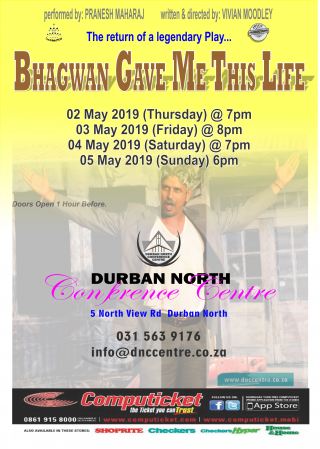Cutting-edge technology for treatment of depression comes to Cape Town
Transcranial Magnetic Stimulation (TMS) is a painless and effective way to stimulate neurocircuitry. This “reboots” the wiring of the brain in a way that improves mood, even in patients who are resistant to other forms of treatment. The aim is to allow parts of the brain impacted by depression to heal.Approved by the US Food and Drug Administration since 2008, this treatment is widely used in Europe and Australia and is available in Johannesburg. However, Cape Town has been slow to catch up – until now.
Dr Marcelle Stastny, a Constantia-based psychiatrist in private practice, recently opened a TMS clinic in Wynberg to serve both her patients and those who are referred from other psychiatric practices. “TMS is an effective alternative treatment for patients who experience intolerable side effects to chemical antidepressants,” she says. “The treatments are painless, and unlike traditional shock therapy, and does not require general anaesthetic.”
The TMS treatment offered at the ReWire clinic (www.rewire.co.za) requires a time and financial commitment – a treatment programme consists of 30 sessions and South African medical aids are still debating the merits of covering the cost of them – but for those who struggle with resistant depression or the side effects of anti-depressant drugs, it’s an attractive alternative. “I grew tired of hearing of the amazing results delivered by TMS in other parts of the world,” says Dr Stastny. “I wanted my patients to have access to this revolutionary treatment too.”
For more information, please contact This email address is being protected from spambots. You need JavaScript enabled to view it. or call 021 794 1321.
TherapyRoute.com, a proudly South African online mental health resource, improves access to mental health services.
TherapyRoute.com, a proudly South African online platform, empowers visitors to find psychologists and other mental health service professionals and providers like social workers, family therapists, counselling services, and community clinics quickly.
This innovative clinician run directory and mental health resource offers free listings to all qualified mental health professionals, organisations, and service providers.
Today, an increasing number of people turn to the internet to find psychologists and other mental health services. Apart from convenience, this frequently helps people overcome any embarrassment they feel by allowing them to learn more about a professional, or service, before making the call.
South Africa continues to struggle with the legacy of apartheid, and mental health services are no exception. It can be challenging to locate a professional who shares your cultural background or language. Similarly, fears of being misunderstood and unfairly discriminated against often act as barriers to entry.
TherapyRoute.com includes features that help address such challenges.
Some Examples:
Easy to use search. Nearby providers appear automatically
Filter results by identity (Black, LGBT+, Nonbinary, Female...), language (isiZulu, Afrikaans...), issue (depressions, anxiety, relationships...), and more
Find online clinicians when no nearby results are found
Thousands of qualified clinicians and providers to choose from
The following core values guide the direction of the platform.
1. Improve access to mental services
TherapyRoute.com improves access to services by innovating tools to empower visitors to find the help they need.
Thanks to a team of volunteers, the database includes many verified community clinics and hospitals. The intention is to link anyone in search of therapy or help, be they rich or poor, with a service that meets their need and means.
Many of the low/no fee listings are included in the following city-specific 'How to find a therapist' guides.
How to find a therapist in Cape Town
How to find a therapist in Durban
How to find a therapist in Johannesburg
How to find a therapist in Pretoria
2. Promote awareness of mental health and talk therapy
TherapyRoute.com equips professionals to publish mental health and therapy-related writing online. The sites growing library of excellent articles promotes awareness of the value of talk therapies that are proven to be effective, relational, and which respect human complexity.
3. Facilitate professional and service visibility
TherapyRoute.com enables qualified mental-health professionals to create a website and represent the services they provide.
The platform is open to all qualified mental health professionals, clinics, counselling centres, rehabilitation programs, and group practices. Private practice and community services are welcome.
Are you looking for a therapist or a mental health service?
Visit TherapyRoute.com to find your best fit therapist now.
Are you a qualified mental health service provider?
Visit TherapyRoute.com and list your service for free.
Do you run a resource page?
Add TherapyRoute.com and help people find the mental health services they need.
The measure of a man brought to the fore in One Man Play
Bhagwan Gave Me This Life The return of a HIT play, in Hindi.
Bhagwan Gave Me This Life was written and directed by well-known theatre veteran Vivian Moodley and is brilliantly performed by Pranesh Maharaj.
Billed as a Hindi play, it is performed in the unique Durban patois that developed from Hindi, with smatterings of English and isiZulu. Set in Inanda in 1981, the drama focusses on the life reflections of a widower Balram. “Vivian had a script in his hand that he wanted me to read. I lunged at it, to get back to him a day later and say that I'll do it. That's when he gave me the ultimate twist in this production: He wanted me to perform it in Bhojpuri (Nataalie Hindi). The Producers at the time were not convinced that a theatre piece in Hindi, in this day and time, would ever work. To be honest, I was not convinced either. Then Vivian and I got to carving this piece of art and four weeks later it was ready to open. That full house and standing ovation on the opening night is what gave us hope. Hope that this kind of serious theatre has a place in this country and in this world. We made some promises back then about taking the play around... well, we are back.” - Pranesh Maharaj.
The sight of those wood and iron, or tin houses as they were known, evoke strong feelings for many people. The corrugated walls, wooden doors with patterned glass panels, sash windows and the verandas with lush coastal vegetation around them speak of a bygone era, although many of those same houses are still standing today. We find a disconsolate Balram, snoozing on an upholstered car seat, propped up against the wall. He is not sleeping peacefully – his dreams recall the tragic dramas of his life and when he awakens, it is to find himself still alive – and alone. Loneliness is the biggest enemy that elderly people have to overcome – and when they have had a life surrounded by family members and the community, it can be a hard pill to swallow. We watch Balram struggle as an ageing man, portrayed with great sensitivity and authenticity by the much younger Pranesh, go through some of the daily rituals that help his day pass. He prays by the shrine, fills the upturned wheel rim with water for the birds and takes a nip of cane spirits from a small bottle hidden in a safe box. There are other treasures in that box and the sight of them bring to mind memories of his youth. The anklets with bells and the silver headdress that were worn by his wife, recall his first meeting when he was a shy young man in the marriage market. With amazing skill and expertise, Pranesh paints the portraits of the eccentric aunts that acted as marriage brokers, as well as playing the entire family of characters who attend the wedding.
Pranesh play out the male and female roles with an adroit combination of hilarious lip syncing and the use of his own tuneful and powerful voice. Most impressive are the tabla-like rhythms that he extracts from an old paint tin in his pursuit of happiness.We are carried along on the wave of the story, a story that, says Vivian, is a composite picture of the community he grew up in and and inspiration that stem from various 'Indian' communities within the Greater Durban area. The tale of the two brothers, the woman abused by her alcoholic husband, the grandparents longing for a child – all are grist to the mill of the story teller. Pranesh shoulders all the roles, giving each their weight and value, teasing out the comedic lines and giving full range to the dramatic tragedy that serves as the denouement. The human condition can be described as the unalterable part of humanity that is inherent and innate to human beings and is not dependent on factors such as gender, race or class. It includes concerns such as the meaning of life, the search for gratification, the sense of curiosity, the inevitability of isolation, or awareness regarding the inescapability of death.
While Bhagwan (God) gave me this Life is almost 90 % Hindi, it was possible to follow the characters and their ranging emotions due to Pranesh’ expert acting and musicianship – ask anyone who has watched the piece already. One of the objects of this very worthwhile project is to take pride in mother tongue and to preserve its use, so ‘culture specific’ is to the point, yet it contains much laughter and 'edge of the seat' drama. Following back to back successes with lengthy runs at various venues in 2014/15, the play has been revived. So Come watch it at the Durban North Conference Centre on 02, 03, 04 & 05 May 2019. Tickets are R150 per person at COMPUTICKET online or at Shoprite / Checkers.
Managing a Business is More Stressful than Raising Children
The World Health Organisation (WHO) identified workplace stress as the greatest health epidemic of the century. Stress can lead to depression and anxiety disorders, something a WHO-led study estimates costs the global economy US$ 1 trillion each year in lost productivity.
What’s more, entrepreneurs and more specifically, small business owners claimed last year, according to Bank of America, that “managing their business is more than four times more stressful than raising children.”
There’s no doubt that entrepreneurship is not for the faint-hearted and that they are more likely to be more stressed compared to the employee workforce, and that they are more likely to worry a lot more. But, stress can lead to depression and other mental health issues.
When people talk about the challenges of entrepreneurship, they seldom discuss the impact that running a business can have on mental wellbeing, and neglect can take its toll, warns Pieter Scholtz, Co-Master Franchisor in Southern Africa for ActionCOACH. A recent study approved by the UC Berkeley Institutional Review Board, revealed that entrepreneurs were more likely to experience depression, ADHD, addiction and bipolar.
“The reality is that many entrepreneurs have to invest more hours in their business than salaried workers. At the same time, they face a degree of uncertainty, fatigue and isolation that’s unknown to employed people. This is especially true at the early stages of a startup, when they cannot be sure if all the hours, and capital, they’re investing in their venture will bear fruit. The constant pressure if often compounded by financial stress, which can lead to burnout, i.e., the owner loses sight of what life is truly about,” he says.
Exacerbating the situation further is the fact that the entrepreneur seldom has a colleague with whom to discuss their anxieties. Moreover, social interchange of any sort – one of the most pleasant aspects of the workplace – is in short supply for the entrepreneur: that stereotype of the ambitious business brain working alone from her dining room table is often all too true.
This isolation can contribute to the depression that arises out of anxiety – plus, there’s the ever-looming spectre of burnout. After all, it’s rare that entrepreneurs have the resources to support a workforce – which means that they carry the brunt of marketing and finance activities, in addition to their core business duties.
“All of this creates a scenario where the entrepreneur’s sense of identity and purpose is strongly bound to the success of the company. While this is understandable, it can have a negative impact on the individual’s self-esteem if the business goes through a rough patch or even fails,” Scholtz points out.
He adds that this is where the tools provided by a business coach can prove extremely useful. “It’s not that the business coach fulfils the role of a therapist – although, inevitably, entrepreneurs experience relief from discussing their concerns with an objective party. Rather, it’s about creating balance for the business owner and equipping them with the skills they need to work through particularly challenging times. The start of a coaching programme is what we call the alignment, where we identify exactly what the business owner wants out of life and then we compare that to where the business is and prioritise the business from there.”
Scholtz refers specifically to the stress experienced by entrepreneurs: as seasoned business owners themselves, business coaches are able to identify with this emotion. They are able to share their own ideas and tips for dealing with stress but, more than this, they are also able to provide practical solutions. For example, the business coach may be able to suggest a resource that can offer the assistance needed to bypass an obstacle; or perhaps they can recommend an alternative approach to tackling the problem that the entrepreneur has not considered because they are too immersed in the situation.
Business coaches can also lessen the isolation experienced by entrepreneurs by tapping into their own extensive networks to find potential contacts who may be a good fit for the startup owner. They will also be able to suggest appropriate conferences and industry events where the entrepreneur can broaden their knowledge while meeting industry peers who may help further the business.
“Ultimately, our role is to ensure the health of an enterprise – and the mental strength and wellbeing of the business owner plays no small role in this. By working together with a business coach, the entrepreneur may build the mental resources needed to tackle the business world,” Scholtz concludes.





